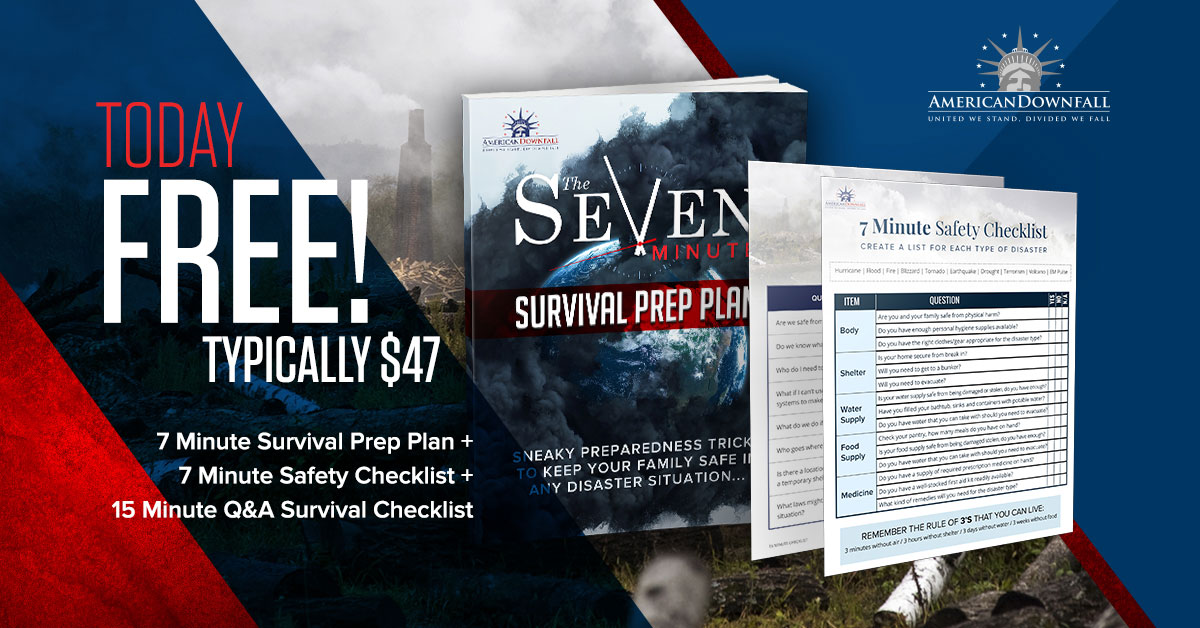When you go out for a hike or a hunt and plan to return that night to your comfortable campsite or bed, you don’t take a whole lot with you. There’s no way of knowing when the weather could suddenly make a turn for the worse, or you could get lost even if you think you’re familiar with the area. Instead of running the risk of never returning home, you should know how to survive out in the wilderness, even if you haven’t prepared to spend the night.
Stay in One Spot
Most people that are lost and reported missing are found within 72 hours of the initial call by a search and rescue team. When you realize that you’re lost or in an unfavorable predicament, stay where you are. Find an opening and start putting out signals if you can. If you feel as though you’re going to be there for a while, start looking nearby to see what you can use to build a shelter and a fire.
Related Article: Lost in the Wild, What Now?
Carry the Two-Pound Survival Kit
Even when you don’t think you’re going to need it, carrying a kit that has items in it that can protect you is going to be essential. Include the following:
- Protection from weather
- Something to keep you warm
- Fire starters
- Water purifiers
- Signals
- Insect Repellent
You should try and have at least a few different ways of making signals besides your phone or a two-way radio that might not work when you need it.
Related Article: What You Need in a Get Home Bag
A Tube Tent
Your shelter is going to be key to your survival. A plastic tube tent is made by using a strong cord tied between two trees. Stretch out the tube to about eight feet, and you have a shelter you can climb into. They weigh just over a pound and come in bright orange so people that are looking for you can find you even from the air.
Related Article: 3 Great Shelter Options for Surviving Unexpected Situations
Staying Warm
In most wilderness settings, it gets cold at night. If you’re out there in the elements, you’re going to want to have something that retains your body heat. There are emergency bags that can be purchased at most camping stores that will do the job.
Related Article: 3 Ways to Stay Warm in the Wilderness Without a Fire
Building a Fire
In your kit, make sure you have waterproof, strike-anywhere matches. The full-size matches are handy because they seem to light easier and they burn a bit longer than a smaller match. Even though they are waterproof, store them in a weather tight container just in case. You don’t want them to be ruined before you have the chance to use them. You should also have some fire starters because even if you’re experienced, weather and water can make it hard to start one.
Suggested Article: 4 Ways to Start a Fire You’ve Never Heard of
Don’t Worry About Food
When there is an expectation of being rescued within 72 hours, food isn’t something that you have to worry about. However, you are going to need water. You can buy tablets that allow you to treat the water that you find. As long as you have packed all your gear for your survival in a one-gallon Ziploc bag, you can use that to put water in to treat.
Signaling and Other Essentials
A mirror and a whistle are both good choices for signaling devices. The whistle is going to be heard a lot further out than your screams.
Related Article: 8 Essential Pieces of Signaling Equipment
Insect repellent can be purchased in small packets to keep you protected from mosquitoes and other insects. You should also include a flashlight that has a long battery life. It can be used as a signal and to help you see at night.
[Bonus] Don’t leave home without knowing these alternative survival medicines. Learn more here >>>




